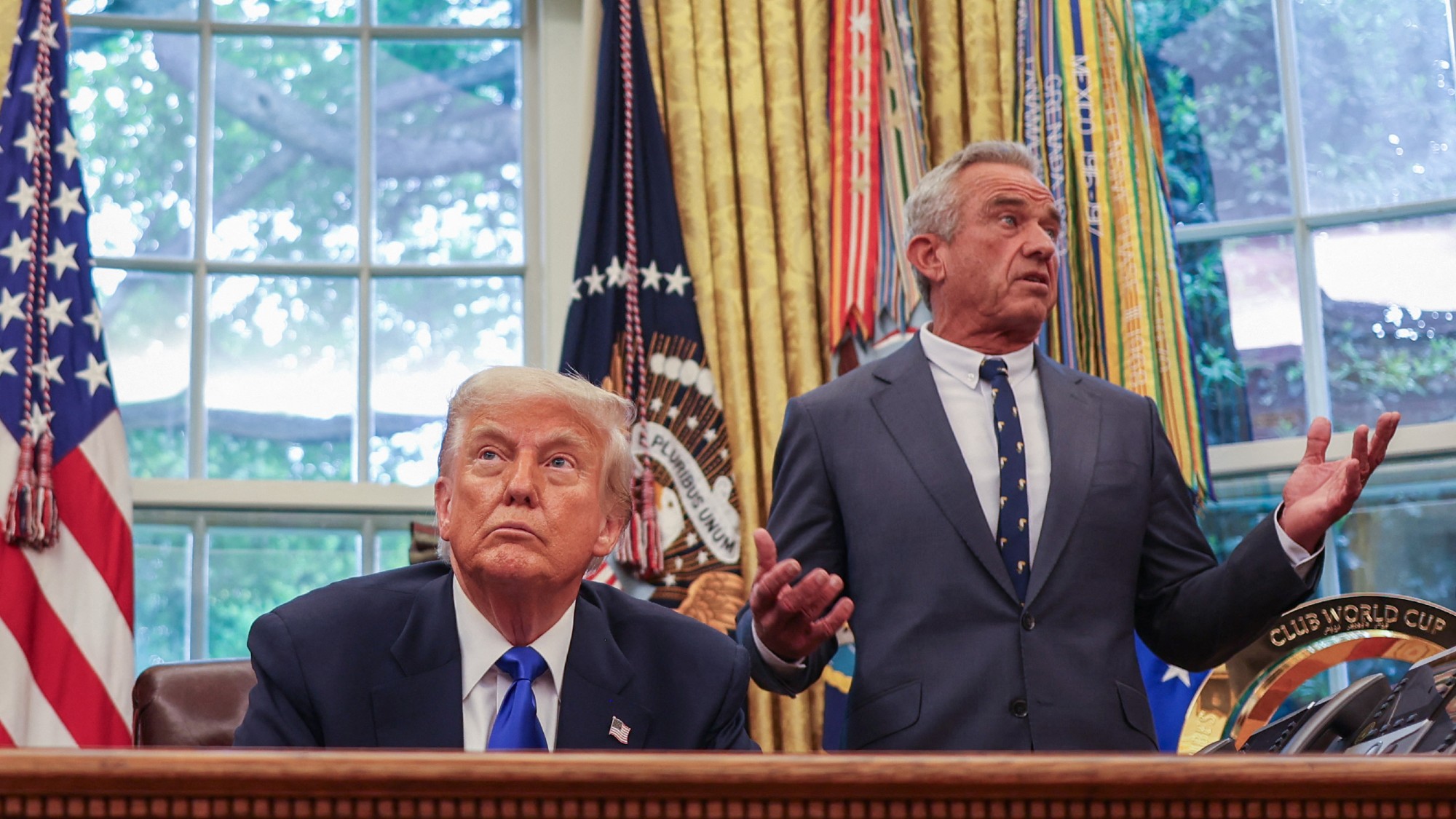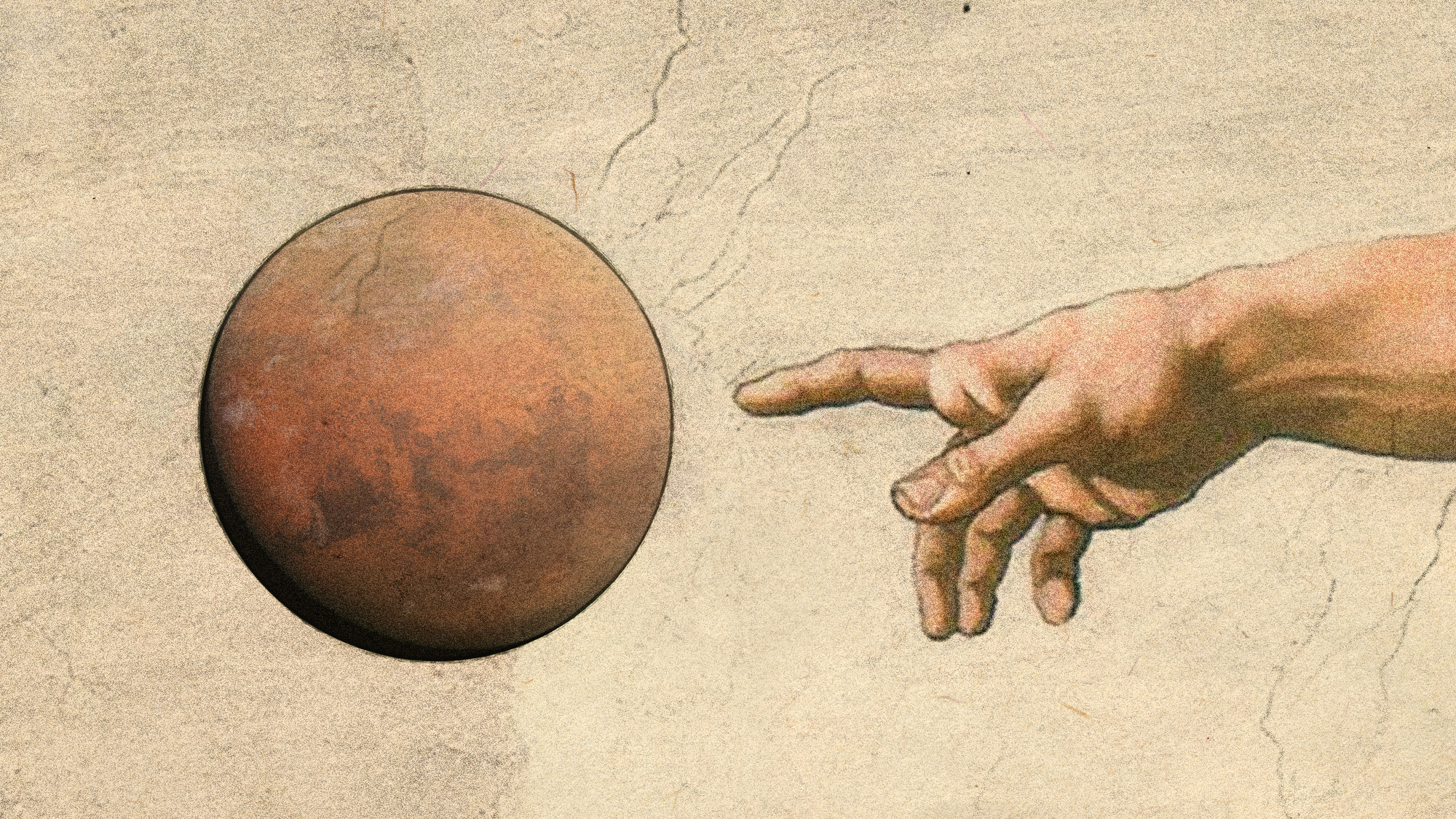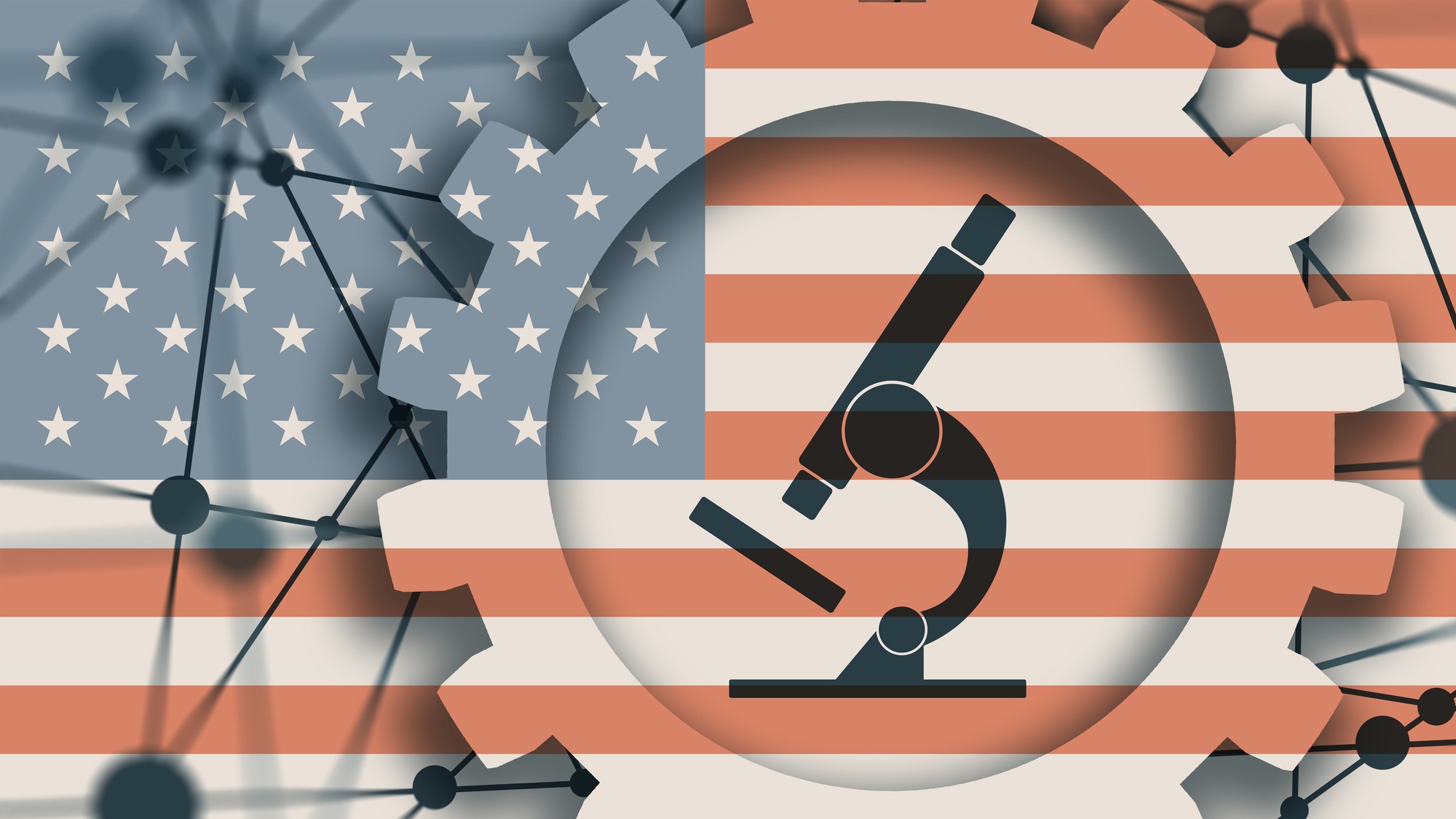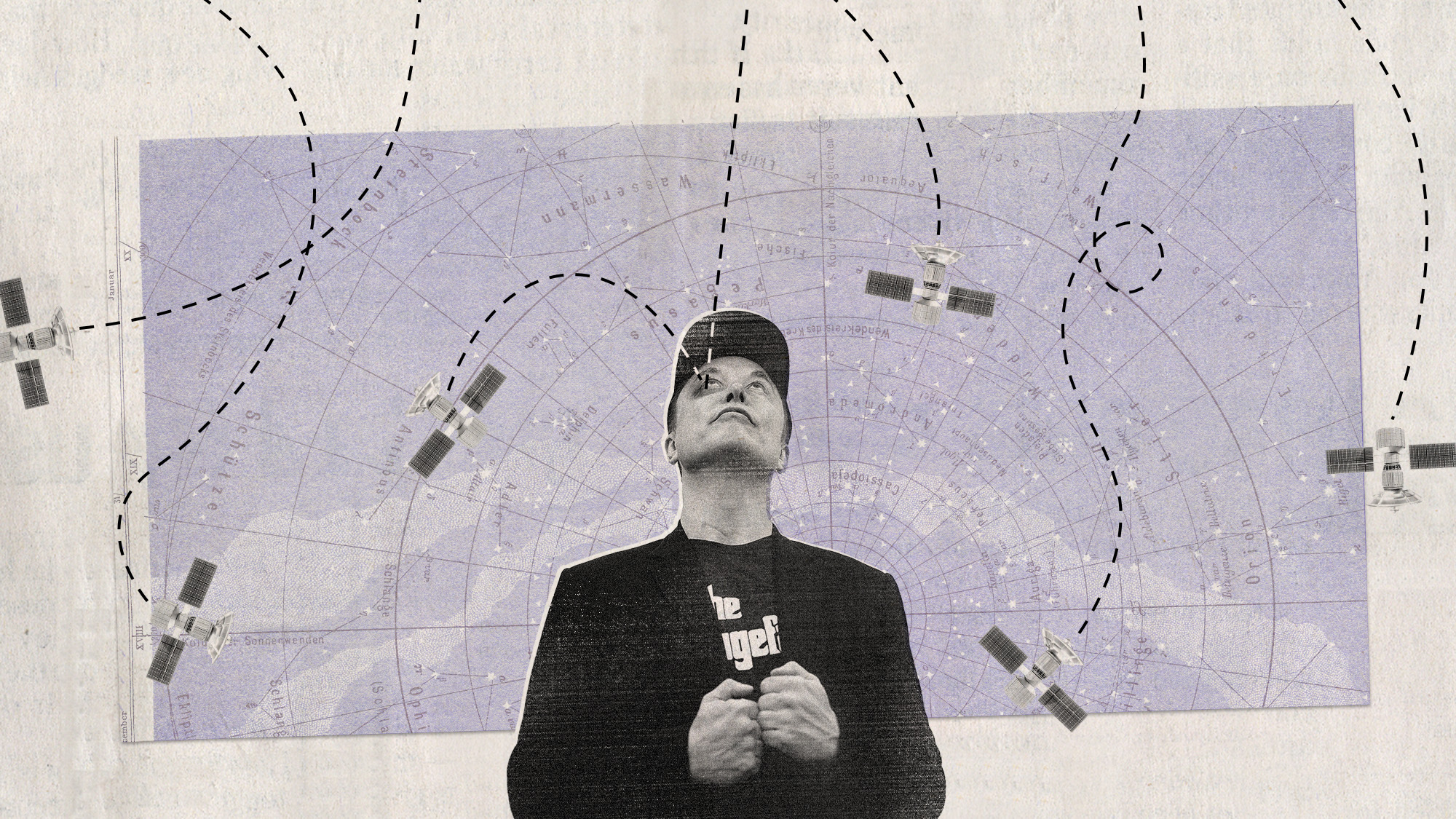Do we need more right-wing scientists?
Academics have a 'responsibility' to demonstrate why research matters to people who are not politically left-leaning, says Wellcome boss

A free daily email with the biggest news stories of the day – and the best features from TheWeek.com
You are now subscribed
Your newsletter sign-up was successful
"We do have to be a little bit honest and say that, to many, it seems like left-leaning atheists have a monopoly on science," said Ella Al-Shamahi, presenter of the BBC's new series Human, in The Sunday Times. Al-Shamahi describes her politics as "definitely left-wing" but believes including more religious and right-wing biases in science will lead to better outcomes.
Her words are a "rare admission of a well-known development" said The Spectator. "They confirm what many have come to recognise: science as presented to the public has taken a decidedly left-wing turn in recent years, and in many cases has been contaminated by hyper-liberal ideology."
Finding common ground
The head of one of the world's largest biomedical funders agrees. John-Arne Røttingen, chief executive of Wellcome UK, told Research Professional News that the scientific community had a "responsibility" to demonstrate why research matters to people who are not politically left-leaning. With a clear reference to what is happening to academic funding in the US, he said that greater transparency over decisions was needed to "sustain the political will to fund science".
The Week
Escape your echo chamber. Get the facts behind the news, plus analysis from multiple perspectives.

Sign up for The Week's Free Newsletters
From our morning news briefing to a weekly Good News Newsletter, get the best of The Week delivered directly to your inbox.
From our morning news briefing to a weekly Good News Newsletter, get the best of The Week delivered directly to your inbox.
The response to a left-wing bias within the scientific community – real or imagined – has been an "unprecedented assault" by the Trump administration on institutions and those who work in them, said Byline Times. US Health Secretary Robert F Kennedy Jr has threatened to ban government scientists from publishing in the world’s leading medical journals. Such "orchestrated attacks" are a threat to the bedrock of "evidence-based policy-making and scientific progress". Funding has been cut, climate research buried and "public health is in jeopardy".
The US is "not the first country to try to dictate the kind of science that can be done within its borders", said Nature. Neither will it be the last. But with regards to its "national and global impact, the United States stands apart."
Rebuilding trust
America is in the midst of an "epistemological crisis", said New York Magazine, and one "most visible and most urgent in the realms of health and medicine". Concerns like "vaccines and fluoridation, nutrition and the chronic-disease epidemic, whether and how to fund cancer research" are now central to a divided debate not just about "what's right but about what is real" when previously they would have been "contested at the fringes of politics without clear ideological valence".
A recent Kaiser poll found nearly one in four Americans report having "not too much or no confidence at all" that scientists operate with the best interests of the public in mind. Nearly half think scientists should play less of a role in policy debates. This matters, said Al-Shamahi, because "if you can't demonstrate that scientists and research labs don't belong to just one tribe, then suddenly it doesn't become a priority to fund them".
A free daily email with the biggest news stories of the day – and the best features from TheWeek.com
Canvasing academics and experts as to a possible solution, The Times said "many researchers want their work to change the world for the better", but need to watch when using their results to "support or call for particular political policies, as this could damage trust in their neutrality".
"There's a role for scientists as political advocates, and I respect that," Jim Naismith, a professor of structural biology at the University of Oxford, told the paper. "But once you take your lab coat off and argue for a political objective, you enter an arena that's played by political rules." In today's realm, you can't then "put the lab coat back on and say, 'I'm neutral and above the political fray'".
-
 Political cartoons for February 15
Political cartoons for February 15Cartoons Sunday's political cartoons include political ventriloquism, Europe in the middle, and more
-
 The broken water companies failing England and Wales
The broken water companies failing England and WalesExplainer With rising bills, deteriorating river health and a lack of investment, regulators face an uphill battle to stabilise the industry
-
 A thrilling foodie city in northern Japan
A thrilling foodie city in northern JapanThe Week Recommends The food scene here is ‘unspoilt’ and ‘fun’
-
 AI surgical tools might be injuring patients
AI surgical tools might be injuring patientsUnder the Radar More than 1,300 AI-assisted medical devices have FDA approval
-
 Cows can use tools, scientists report
Cows can use tools, scientists reportSpeed Read The discovery builds on Jane Goodall’s research from the 1960s
-
 5 recent breakthroughs in biology
5 recent breakthroughs in biologyIn depth From ancient bacteria, to modern cures, to future research
-
 Answers to how life on Earth began could be stuck on Mars
Answers to how life on Earth began could be stuck on MarsUnder the Radar Donald Trump plans to scrap Nasa's Mars Sample Return mission – stranding test tubes on the Red Planet and ceding potentially valuable information to China
-
 Scientists are the latest 'refugees'
Scientists are the latest 'refugees'In the spotlight Brain drain to brain gain
-
 Why Elon Musk's satellites are 'dropping like flies'
Why Elon Musk's satellites are 'dropping like flies'Under The Radar Fierce solar activity destroying Starlink satellites
-
 Why is Nasa facing a crisis?
Why is Nasa facing a crisis?Today's Big Question Trump administration proposes 25% cut to national space agency's budget in 'extinction-level event'
-
 Is the world losing scientific innovation?
Is the world losing scientific innovation?Today's big question New research seems to be less exciting